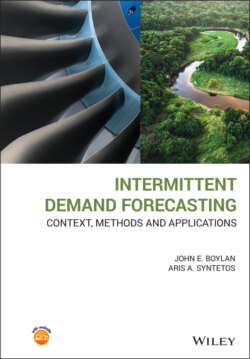Читать книгу Intermittent Demand Forecasting - John E. Boylan - Страница 37
2.2.2 Dependent and Independent Demand Items
ОглавлениеIn theory, all SKUs that appear at a level below the end product level are dependent demand items and should be treated using MRP‐type procedures. However, there are two exceptions to this rule.
If a company is operating a MTO policy, then everything must be assembled during the time window from receipt of order to the delivery date. Not all the components will necessarily be produced or procured in this time frame, though. Therefore, stocks of the relevant components must be held. Ordering will no longer be based on demand that is completely known over the lead time. Instead, stock levels must be informed by forecasted demand.
The second exception relates to spare parts. Parts may be dependent demand items as far as manufacturing is concerned, but they are independent demand items as far as after‐sales service is concerned. They are subject to unknown demand that varies over time, partly due to chance; such demand is known as ‘stochastic’. Because spare parts demand is not known in advance, it needs to be forecasted, taking into account that spare parts are often subject to intermittent demand.
